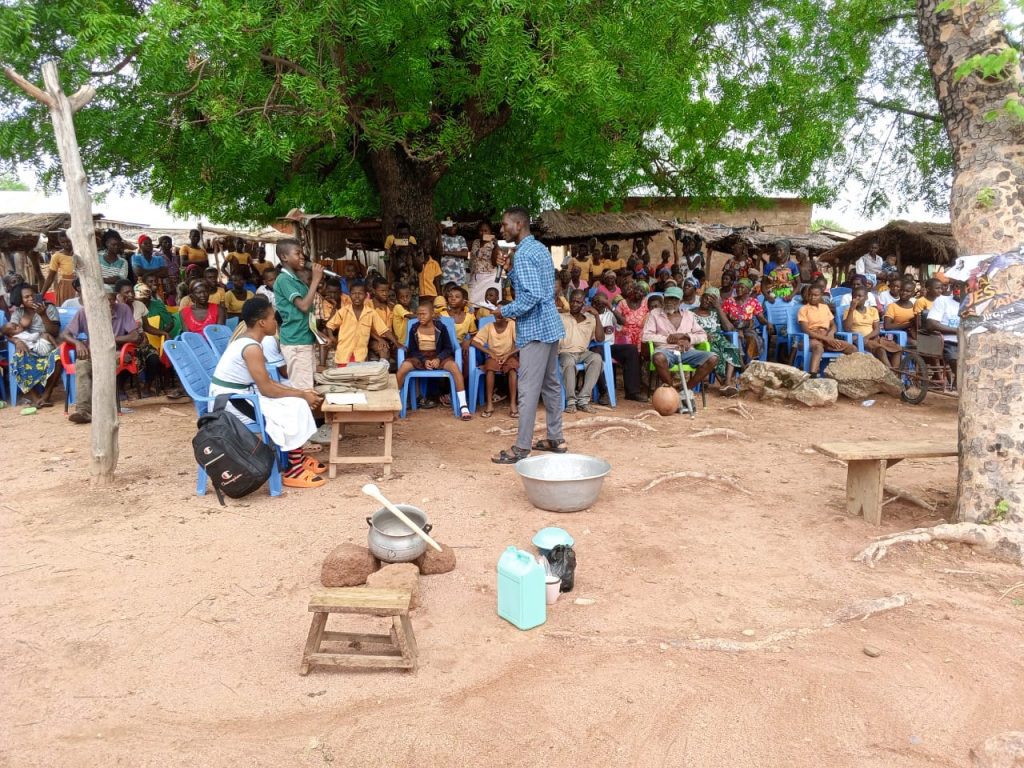|
Getting your Trinity Audio player ready...
|
WaterAid Ghana has stressed the need for women’s involvement and active participation in managing Water, Sanitation, and Hygiene (WASH) facilities within their communities.
In addressing the persistent challenge of sustaining WASH facilities, the organisation identified effective WASH governance as essential for ensuring their long-term viability.
Madam Fauzia Aliu, Policy, Campaigns, and Inclusion Manager for WaterAid Ghana, said despite the Community Water and Sanitation Agency (CWSA) recommending at least 60 per cent female membership on Water and Sanitation Management Teams (WSMTs), women’s voices often remained unheard.
Speaking in Jirapa during a leadership training session for WSMT members from Gbare, Ul-Dantie, and Sabulli communities, she underscored the need for inclusive leadership of the WSMT.
The training, a collaborative initiative between WaterAid Ghana and Diageo is aimed to empower WSMTs to effectively manage solar-powered mechanised water systems in their communities.
It included leadership skills and practical exercises to address and overcome gender norms and stereotypes that hindered women’s active participation.
Madam Aliu noted the ineffectiveness of the current WSMTs and the poor condition of facilities, emphasising the necessity of incorporating women’s perspectives in WASH management.
“Bringing the silent voices of those affected by dysfunctional facilities, particularly women, into the decision-making process is crucial,” she stated.
Madam Aliu explained that “Women bear the brunt of lack of access to WASH related services such as travelling long distances for water, spending time in search of water, care for sick children and other tasks that limit their economic opportunities.”
She reiterated WaterAid Ghana’s commitment to partnering with other organisations to build and sustainably maintain WASH facilities, contributing to the Sustainable Development Goals (SDGs) on water and sanitation and enhancing community living standards.
Mr James Nono, the representative of the Chief of Gbare pledged commitment to supporting women’s active participation in WASH management, which underscored the importance of inclusive governance and the critical role of women in maintaining sustainable WASH services.
“We will ensure that women’s contributions in the teams are heard and provide an environment for them to contribute to decisions related to WASH facility management in the community,” he stated.
WaterAid Ghana also facilitated community dramas to raise awareness about the dire effects of gender norms and stereotypes in community development.
These performances received positive feedback, with community members recognising the benefits of shared responsibilities.
Madam Juliet Mwinsungma, a resident of Gbare recognized the need to support girl child education instead of marrying them off at early ages.
The project’s goal was to enhance access to improved WASH services and create an environment where women could thrive and to contribute to a balanced and equitable society.
By promoting gender equality and empowering women in WASH governance, WaterAid Ghana and its partners aim to ensure sustainable WASH services, support community development and improved living standards in the Jirapa Municipality.
Source: myghanadaily


